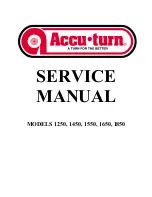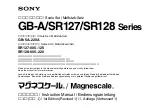
87
14.2.2 Data Format
Data format 1 (“F-dF1” in menu item selection) is the CAS’s standard data format.
(See 14.3.3.5) The following is the details of this data format.
(1) Basic format
An example of data format for a negative weight value (-21.6865g) with delimiter of C/R is
shown.
Data length of this example: 13 bytes
Position
1 2 3 4 5 6 7 8 9 10
11
12
13
ASCII
code
2DH 20DH 20DH 32DH 31DH 2EH 36H 38H 36H 35H 67H 20H 0DH
Data
- 2 1 . 6 8 6 5 g C/R
The data length varies depending on attached information, unit expression and the delimiter
selection as explained in (2).
Remarks
Position 1: For a positive value, " " (space) (20H), and for a negative value, "-" (2DH)
is in this position.
Positions 2 to 10: The absolute value. When the numerical value does not use all the 9
positions, the code for space (20H) is entered to each excessive position as
shown in this example. With CAUW-D, space may appear after the value;
at the position No.10.
Positions 11,12: One or two letters indicating the weighing unit. As shown in this example,
the code for space is entered at position No.12 if only one letter is used for
the unit.
Position 13: Code for delimiter.
(2) Information of additional bytes
(i) Output with stability information
When outputting data with stability information (Refer to 14.2.3 D7), the code for “S” or “U”
is added before Position No.1 in the above example. Consequently, the data becomes 1 byte
longer.
When stable: S
When unstable: U
(ii) Verified balance as a legal measuring instrument
The brackets “[ ]” bordering auxiliary indicating device of legal measuring instrument are
also outputted. In this case, “[” and “]” are inserted to border the part of auxiliary indicating
device in the format. Consequently, the data becomes 2 bytes longer.
Summary of Contents for CAU Series
Page 1: ...2 ...
Page 5: ...6 ...
Page 117: ...118 MEMO ...
Page 118: ...119 ...
Page 119: ...120 ...
















































